UK floods: The winners and losers
- Published
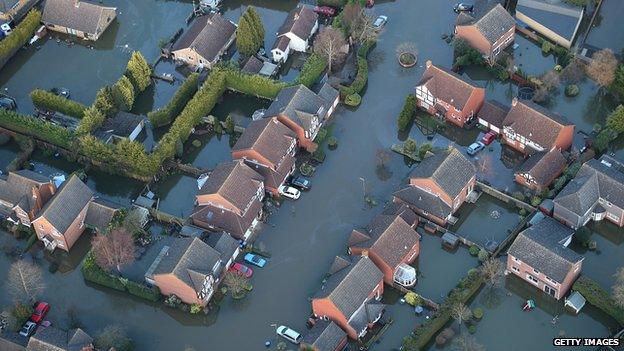
We have seen extraordinary amounts of rainfall in England and Wales in recent weeks, which has caused flooding in some areas.
When the water levels finally subside we'll have a chance to assess the damage fully.
But it won't all be bad news - some groups will benefit from the flooding.
So who are the winners and losers from the floods?
HOUSEHOLDERS
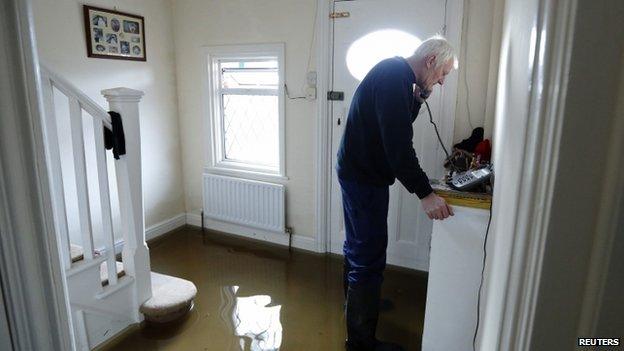
Clearly, the big losers are those whose homes are affected by the flooding.
At last count, 5,800 properties had been flooded, which is a pretty small number by the standards of recent major flooding, but it's still a nightmare for those affected.
Insurers have been estimating average repair works of between £30,000 and £40,000 per household, so the costs mount up.
On top of that, many thousands of households have been evacuated, even if their homes have not in the end been damaged.
Other people have, with the help of local authorities and the Environment Agency, been battling to protect their properties from rising floodwaters.
All of these people have made big losses in terms of time and effort. Many have had to take time off from work or been unable to get to work.
FARMERS
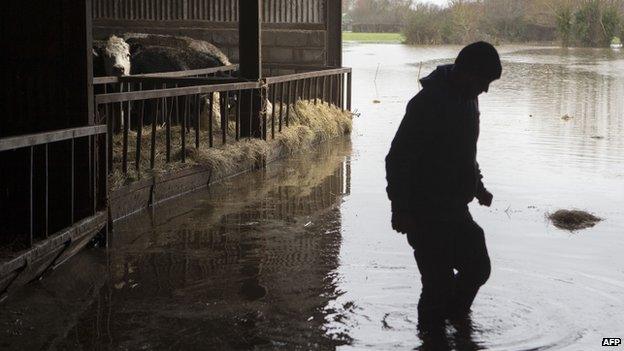
Many farmers have been struggling with flooded fields and ruined crops.
Transport problems have also made it difficult to get supplies such as bedding and feed to livestock farmers.
On the flip side, there could be a benefit in the future for unaffected farmers if spoiled produce means prices rise, but it is too early to tell whether that is going to happen.
BUILDERS
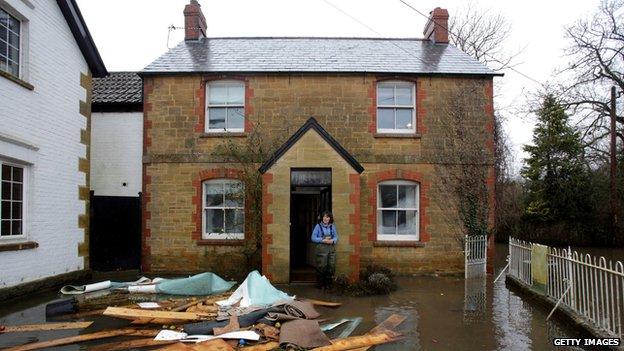
The beneficiaries of all the damaged homes will be builders.
Bank of England governor Mark Carney predicts that the flooding will knock a bit off economic activity, external in the current quarter, which will be recovered later in the year.
That recovery will be down to repair work and people buying things like carpets and furniture to replace damaged items.
Even in areas where flooding has been less of a problem, the heavy and persistent rain will have highlighted problems with, for example, roofs that need repairing.
POWER COMPANIES
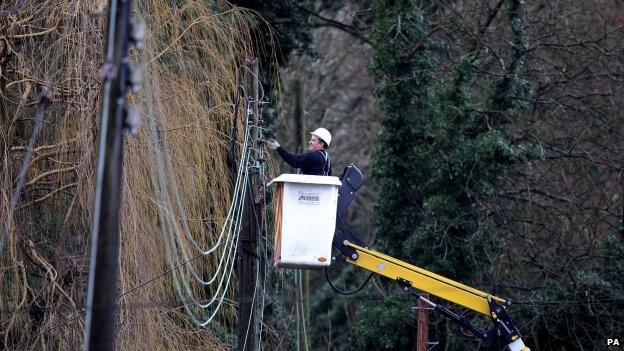
The combination of floods and high winds have left many people without power.
The companies that operate the networks have been trying desperately to reconnect them.
Some had to bring in extra engineers to restore power, as well as paying compensation to those whose supplies were interrupted.
According to the Energy Networks Association, 750,000 homes lost power in the severe weather over Christmas, external.
While we're talking about utility firms, it's worth mentioning that although water companies have been having problems with flooded sewers, they at least won't have to worry about imposing hosepipe bans this summer.
INSURANCE FIRMS
We'll be seeing figures coming out from insurers in the coming weeks about how much they are paying out for flood damage.
The insurance industry does not release figures for how much it takes in flooding protection premiums because, it says, few people pay separately for flooding cover.
Representatives from the insurance industry are meeting the prime minister at Number 10 on Tuesday, where they will be encouraged to sort out claims as quickly as possible.
If the amount paid out to insured households turns out to be considerably more than usual then it is possible that premiums will rise in the future, or that insurers' profits or dividends will be lower.
As a point of comparison, there were payouts of £3bn as a result of the summer floods in 2007, according to the Association of British Insurers (ABI) but far more homes were flooded then - more than 48,000.
Across the whole of 2012, flooding caused damage worth £4bn.
SANDBAG COMPANIES
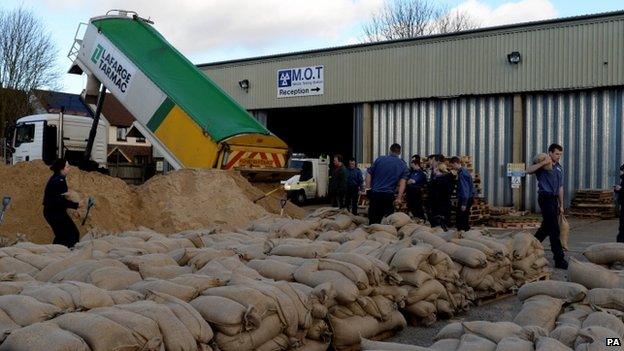
It has been a good year for companies providing flood protection products.
You can hardly switch on a news bulletin without seeing people piling up sandbags, and businesses selling other DIY materials must also have benefited.
We've seen all sorts of pumps, aqua dams and other flood protection devices being used in the past few weeks.
One of the bigger winners from the floods must be the Van Heck group, which supplied the 13 pumps, external brought in from the Netherlands to divert water from parts of the Somerset Levels.